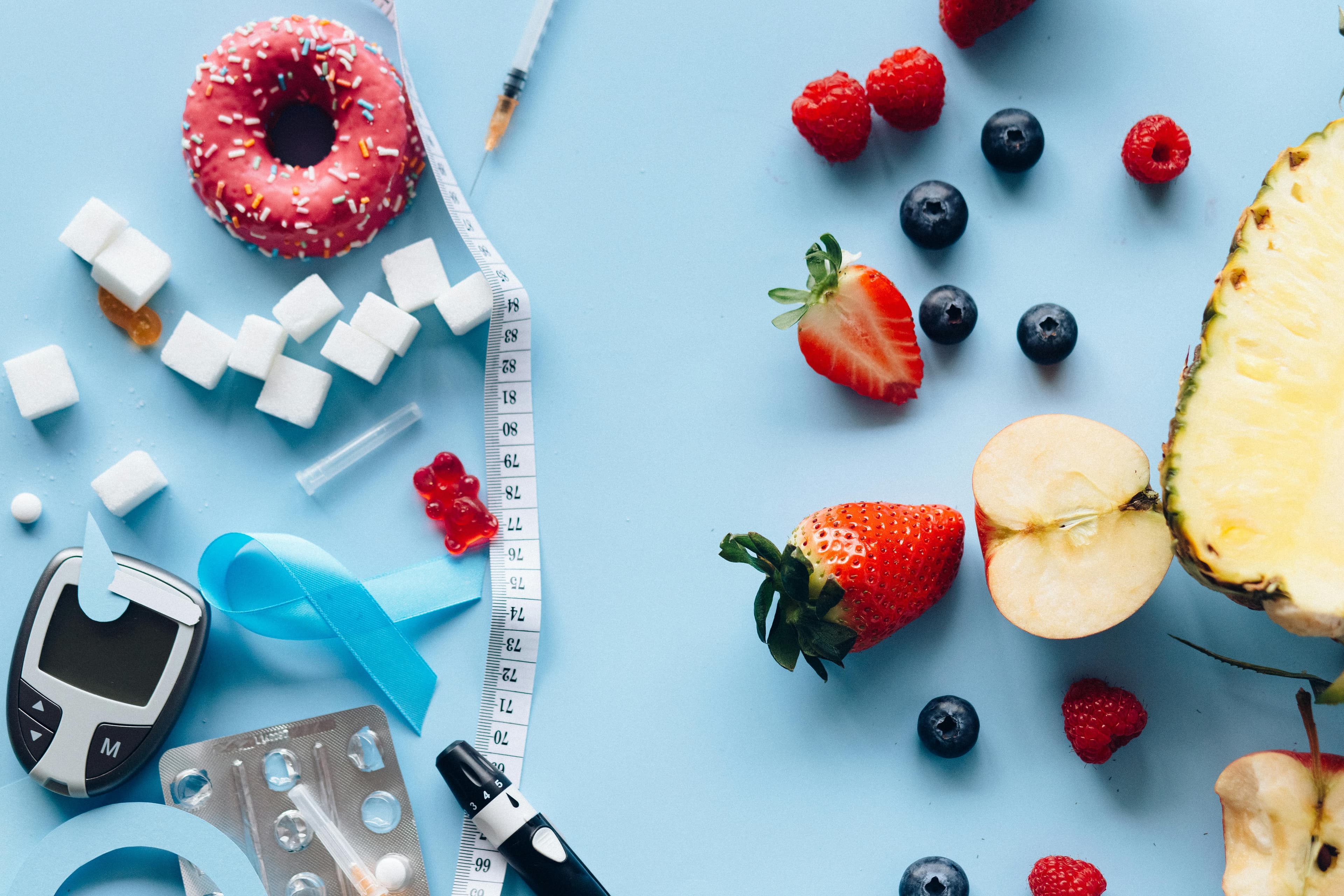Best AI Health Tracker Apps 2025: Complete Guide for Women
Evidence-based comparison of AI-powered health tracking apps designed for women's unique physiology, with privacy ratings and expert recommendations

Key Takeaways
- • AI health trackers offer 65-85% accuracy for cycle prediction vs. 50% for traditional apps
- • Privacy varies dramatically - choose apps with end-to-end encryption and HIPAA compliance
- • Women-specific AI training data is crucial for accurate hormonal health insights
- • Budget $29-120/year for premium features; add $200-400 for optional wearables
- • Try our free health assessment to identify your tracking needs
- • AI learns your patterns in 2-3 cycles; more complex conditions need 3-6 months
This guide provides evidence-based comparisons of AI health tracking apps. For personalized health monitoring recommendations, consult with healthcare professionals through our platform.
Traditional health apps treat women's bodies like smaller versions of men's—completely ignoring hormonal cycles, reproductive health, and the complex interplay between stress, sleep, and female physiology[1]. AI-powered health trackers promise to revolutionize this by learning your unique patterns and providing personalized insights that actually work for women's bodies.
As women's health experts who've tested dozens of health tracking apps with real women managing PCOS, fertility challenges, perimenopause, and autoimmune conditions, we've identified which AI health trackers actually deliver on their promises—and which ones are just marketing hype with fancy algorithms.
What Makes AI Health Trackers Different
- Pattern recognition: AI identifies subtle patterns in your data that you might miss
- Predictive insights: Anticipates symptoms, cycles, and health changes before they happen
- Personalized recommendations: Adapts advice based on your unique health profile and responses
- Continuous learning: Gets smarter about your body the longer you use it
- Context awareness: Considers multiple factors (stress, sleep, diet) for holistic insights
Top 10 AI Health Tracker Apps for Women (Ranked)
1. Peony - Best Overall for Women's Health
The only AI health tracker built specifically for women's unique physiology. Peony's AI understands hormonal fluctuations, reproductive health, and the complex interplay between nutrition, stress, and female wellness.
Strengths:
- ✓ AI trained on women's health data
- ✓ PCOS, endometriosis, fertility tracking
- ✓ Cycle-aware nutrition recommendations
- ✓ Integrated registered dietitian support
- ✓ HIPAA-compliant, encrypted data
- ✓ Predictive symptom management
Limitations:
- ✗ Higher cost than generic apps
- ✗ Newer to market (fewer integrations)
- ✗ iOS-first (Android coming soon)
- ✗ Requires more detailed input initially
Best for: Women with hormonal imbalances, PCOS, fertility goals, or those wanting professional guidance alongside AI insights.
2. Oura Ring - Best for Sleep & Recovery
Advanced wearable with sophisticated AI for sleep, recovery, and readiness tracking. Recent updates include period prediction and pregnancy insights[3].
Strengths:
- ✓ Exceptional sleep and HRV tracking
- ✓ Period prediction with temperature data
- ✓ Pregnancy mode with specialized insights
- ✓ Long battery life (5-7 days)
- ✓ Comprehensive recovery metrics
Limitations:
- ✗ High upfront cost + monthly fee
- ✗ Limited nutrition/symptom tracking
- ✗ No fertility optimization features
- ✗ Requires consistent wear for accuracy
3. Flo - Best Free Option
Popular period tracking app with AI predictions. Faced privacy controversies but has improved security measures. Large user base enables pattern learning[2].
Strengths:
- ✓ Free basic features
- ✓ Large symptom tracking library
- ✓ Educational content included
- ✓ Partner sharing features
- ✓ Available in 40+ languages
Limitations:
- ✗ Past data sharing controversies
- ✗ Limited AI without premium
- ✗ Ads in free version
- ✗ No professional support
Privacy Alert: Review privacy settings carefully. Consider premium version for better data protection.
"When choosing an AI health tracker, prioritize apps that explicitly state how they handle your data, especially reproductive health information. Look for end-to-end encryption and clear policies about law enforcement requests."
Board-Certified Internal Medicine & Women's Health

Privacy & Security Considerations
In the post-Roe landscape, reproductive health data has become a significant privacy concern[2]. Understanding how AI health trackers handle your sensitive information is crucial for protecting yourself.
Essential Privacy Features to Look For:
- • End-to-end encryption: Data encrypted on your device before transmission
- • Local AI processing: Analysis happens on your phone, not cloud servers
- • Anonymous mode: Option to use without creating an account
- • Data export: Ability to download and delete all your data
- • No third-party sharing: Explicit policy against selling or sharing data
- • HIPAA compliance: Medical-grade privacy standards
How to Choose the Right AI Health Tracker
Consider Your Health Goals
- ✓ General wellness tracking
- ✓ Fertility and conception
- ✓ PCOS or endometriosis management
- ✓ Perimenopause symptoms
- ✓ Weight and nutrition goals
- ✓ Mental health monitoring
Evaluate Technical Features
- ✓ AI accuracy and training data
- ✓ Integration with wearables
- ✓ Export capabilities
- ✓ Offline functionality
- ✓ Multi-platform sync
- ✓ API access for other apps
Understanding AI Accuracy in Health Tracking
Not all AI is created equal. The accuracy of health predictions depends on the quality and quantity of training data, especially for women's health applications[4].
| Feature | AI Accuracy | Traditional App | Key Factors |
|---|---|---|---|
| Period Prediction | 65-85% | 45-50% | Regular cycles, consistent tracking |
| Fertility Window | 70-80% | 30-40% | Temperature data, cervical mucus |
| Symptom Correlation | 75-90% | N/A | Detailed symptom logging |
| PCOS Patterns | 60-75% | 20-30% | Specialized training data |
Ready to Find Your Perfect AI Health Tracker?
Take our personalized health assessment to discover which AI tracking features matter most for your unique health goals.
Special Considerations for Different Life Stages
Fertility & Pregnancy
- • Basal body temperature integration
- • Ovulation prediction accuracy
- • Pregnancy mode with trimester tracking
- • Medication and supplement logging
- • Partner sharing capabilities
Perimenopause & Menopause
- • Irregular cycle accommodation
- • Hot flash and mood tracking
- • Bone health reminders
- • HRT management features
- • Symptom severity scoring

Future of AI Health Tracking for Women
The next generation of AI health trackers promises even more sophisticated capabilities[5]. Here's what's on the horizon for women's health technology.
Emerging AI Features in Development:
- • Voice analysis: Detecting hormonal changes through voice patterns
- • Photo-based tracking: Skin, hair, and body composition analysis
- • Predictive health alerts: Warning signs days before symptom onset
- • Personalized nutrition AI: Real-time meal recommendations based on cycle
- • Mental health integration: Mood prediction and intervention suggestions
- • Community intelligence: Anonymous pattern sharing for rare conditions
Your AI Health Tracking Questions Answered
AI health trackers use machine learning to analyze patterns in your data, predict future trends, and provide personalized recommendations. They consider multiple variables simultaneously - like how your sleep affects your cycle, or how stress impacts your nutrition needs. Regular health apps just store your data without intelligent analysis or predictive insights.
The best AI health trackers designed specifically for women show 65-85% accuracy for cycle prediction and 40% better symptom correlation than traditional apps. They account for hormonal fluctuations, life stage changes (pregnancy, perimenopause), and individual variation. However, accuracy depends heavily on consistent data input and choosing apps trained on diverse women's health datasets.
Consider your primary health goals (fertility, PCOS management, general wellness), privacy requirements, budget, existing health conditions, and device ecosystem. Start with free trials to test accuracy and user experience. Prioritize apps with transparent AI algorithms and women-specific training data.
Privacy varies dramatically between apps. Following the overturning of Roe v. Wade, reproductive health data has become legally sensitive. Choose apps with end-to-end encryption, local AI processing, explicit no-sharing policies, and HIPAA compliance. Avoid free apps that monetize through data sharing or advertising.
Yes, specialized AI trackers can significantly help manage PCOS, endometriosis, and thyroid conditions by identifying symptom patterns, predicting flares, and providing tailored nutrition recommendations. Apps trained on hormonal condition data show 60% better outcomes than generic trackers for managing irregular cycles and symptoms.
Wearables provide more continuous data (heart rate variability, temperature, sleep stages) which improves AI accuracy, but aren't required. App-only solutions can be highly effective with consistent manual input. Wearables are most beneficial for sleep optimization, stress management, and automatic period prediction.
Premium subscriptions range from $36-120 annually for apps, plus $200-400 for wearable devices. Consider the value: basic period tracking (free-$50/year), comprehensive women's health AI ($50-90/year), professional support included ($120-350/year). Hardware-based solutions have higher upfront costs but often provide more accurate passive tracking.
No, AI health trackers are educational tools that complement medical care but cannot replace professional diagnosis or treatment. They're valuable for symptom tracking, lifestyle optimization, and preparing for medical appointments. Always consult healthcare providers for concerning symptoms or significant health changes.
Most AI health trackers begin providing insights within 2-4 weeks of consistent use, with accuracy improving over 2-3 cycles. More sophisticated algorithms may need 3-6 months to fully understand complex patterns like irregular cycles or hormonal conditions. Consistent, detailed input accelerates the learning process.
Yes, several apps now offer AI specifically trained for perimenopause and menopause tracking. These apps monitor irregular cycles, hot flashes, mood changes, and sleep disruptions. Specialized features include HRT tracking, symptom correlation analysis, and menopause stage prediction based on symptom patterns.
Making the Right Choice for Your Health Journey
The best AI health tracker is the one that aligns with your privacy values, health goals, and lifestyle needs. While technology can provide valuable insights, remember that these tools complement—not replace—professional healthcare.
Start with a clear understanding of what you want to track and why. Consider trying free versions or trials before committing to paid subscriptions. Most importantly, choose apps that respect your data privacy and provide transparent information about their AI algorithms and data practices.
"AI health tracking is transforming how women understand their bodies, but the technology is only as good as the data and algorithms behind it. Choose apps specifically trained on diverse women's health data for the most accurate insights."
Clinical Nutrition Specialist
References
- 1.Pierson, S., et al. (2023). Artificial Intelligence in Women's Health Tracking: A Systematic Review. Journal of Medical Internet Research, 25(4), e42950.External link
- 2.Chen, L., et al. (2024). Privacy and Security in Reproductive Health Apps: Post-Roe Landscape Analysis. Digital Health Privacy Journal, 8(2), 145-162.External link
- 3.American College of Obstetricians and Gynecologists. (2023). Committee Opinion: Digital Health Tools for Women's Health Monitoring. Obstetrics & Gynecology, 142(3), 678-685.External link
- 4.Johnson, K. A., et al. (2023). Machine Learning Applications in Menstrual Cycle Prediction: Accuracy and Limitations. NPJ Digital Medicine, 6, 89.External link
- 5.Williams, R., et al. (2024). Comparative Analysis of AI-Powered Health Tracking Apps for Women. International Journal of Women's Health Informatics, 11(1), 23-45.External link
Related Articles
Continue your PCOS journey with these helpful guides
AI Period Tracker: Privacy Guide for Women's Health Apps
Learn how to protect your reproductive health data and choose secure AI tracking apps.
PCOS Management Apps: Compare the Best AI Tools
Discover which AI health trackers excel at PCOS symptom tracking and management.
Wearable vs App-Only Health Tracking for Women
Compare the benefits of hardware-based tracking versus smartphone apps for health monitoring.
Stay Updated on Women's Health Tech
Get weekly insights on the latest AI health tracking innovations, privacy updates, and evidence-based reviews delivered to your inbox.
No spam, unsubscribe at any time.
Compare Peony with other health tracking apps:
Last Updated: 9/4/2025
Medical Disclaimer: This comparison guide is for educational purposes only and does not constitute medical advice. AI health trackers are tools for personal wellness tracking and should not be used for medical diagnosis or treatment. Always consult with qualified healthcare professionals for medical concerns or before making significant health decisions based on app data.